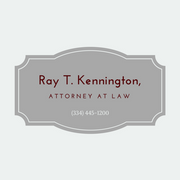Understanding Priority & Non-Priority Debts in Bankruptcy

Bankruptcy law classifies debts into two categories: priority and non-priority. This means that some creditors take precedence and will be paid before others. The type of bankruptcy one files, be it Chapter 7 or Chapter 13, has a direct impact on how much creditors ultimately receive. To help you prepare to file, here’s a closer look at different kinds of priority and non-priority debts and how they’re handled.
Priority Debts
While Chapter 7 bankruptcy eliminates most kinds of unsecured debt, there are certain balances that can’t be discharged by the courts. Domestic support obligations, like child or spousal support, and certain types of tax debt are generally not dischargeable, so they’re examples of priority debts and will be paid first, typically through the liquidation of assets. If you have no assets or liquidation doesn't cover the costs, you will continue to be responsible for these debts after bankruptcy.
According to Chapter 13 bankruptcy law, debts are not eliminated; they’re repaid over the course of three to five years via a court-approved payment plan. Priority debts—which include domestic support, tax debt, DUI judgements, and the administrative expenses of litigating the bankruptcy—will need to be paid in full through the repayment plan.
Non-Priority Debts
 Non-priority debts are always unsecured, meaning they’re not protected with collateral or a guarantor. With very few exceptions, these debts are discharged in Chapter 7, and they’re settled for far lesser amounts in Chapter 13 before being worked into the monthly repayment plan.
Non-priority debts are always unsecured, meaning they’re not protected with collateral or a guarantor. With very few exceptions, these debts are discharged in Chapter 7, and they’re settled for far lesser amounts in Chapter 13 before being worked into the monthly repayment plan.
Credit card debt, medical bills, back rent, personal loans, and old tax claims are examples of non-priority debts. Student loans are one notable exemption; bankruptcy law views them as the highest-priority debts, and you will need to repay them in full.
Understanding priority and non-priority debts will help you navigate the bankruptcy process and identify any balances that may remain afterward. The law firm of Ray T. Kennington, Attorney at Law, is here to guide you at every step. Since 1982, Attorney Kennington has been representing the Ozark and Enterprise, AL, area in family and bankruptcy law, personal injury, and Social Security disability cases. Call (334) 445-1200 or visit his website to schedule a consultation with a skilled attorney today.
About the Business
Have a question? Ask the experts!
Send your question

